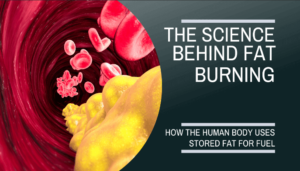The Science of Losing Pounds: How Your Body Burns Fat
Losing weight is typically viewed as a mystery, but understanding how your body burns fat might help make the process more efficient. Weight loss is more than just food and exercise; it is a multifaceted biological process including metabolism, hormones, and energy balance. In this piece, we’ll look at the science underlying fat burning and how to improve your results.
How does your body burn fat?
Fat loss occurs when your body consumes stored fat for energy. This occurs when there is a calorie deficit, which means you expend more calories than you ingest. Your body transforms fat into energy using a number of metabolic processes that include:
Lipolysis is the process by which your body converts fat cells into free fatty acids and glycerol. These chemicals then enter the bloodstream.
Beta-Oxidation – Once within the cell, free fatty acids are further broken down in the mitochondria, producing energy in the form of ATP (Adenosine Triphosphate).
Excretion – The byproducts of fat metabolism are evacuated by the lungs, sweat, and urine. In fact, most fat leaves the body as carbon dioxide during expiration.
What Causes Fat Burning?
Simply eating less does not cause your body to burn more fat. Several important elements influence how well your body uses stored fat for energy:

1. Calorie Deficit
The fundamental of weight loss is to eat less calories than your body burns. When this occurs, your body is compelled to burn stored fat to meet its energy requirements. However, a severe calorie reduction can decrease metabolism, therefore it’s critical to keep a steady deficit.
2. Exercise and Physical Activity.
Cardiovascular activity (such as jogging and cycling) and strength training are both effective fat burners. Cardio increases calorie expenditure, whereas strength training develops muscle, which boosts metabolism over time.
3. Hormones & Fat Metabolism
Hormones control how your body burns fat.
Insulin: Excessive sugar consumption causes high insulin levels, which promotes fat storage. Lowering insulin levels through balanced eating can promote fat loss.
When blood sugar levels drop, glucagon, which works in the opposite direction of insulin, helps break down fat.
Cortisol: While cortisol is required for energy control, excessive cortisol (due to stress) can cause fat retention, particularly around the stomach.
4. Sleep and Recovery.
Poor sleep alters metabolism, increasing hunger hormones such as ghrelin and decreasing leptin (the hormone that indicates fullness). Prioritizing excellent sleep can aid in weight loss.
5. Nutritional Choices
Certain foods increase fat oxidation. Protein-rich diets boost metabolism, but fiber-rich foods assist regulate appetite. Healthy fats, such as omega-3s, can increase fat-burning efficiency by modulating hormones.
Final Thoughts
Fat loss is a scientific procedure that necessitates a deliberate approach. By creating a calorie deficit, remaining active, reducing stress, and regulating sleep, you can improve your body’s ability to burn fat efficiently. Long-term weight loss success depends on developing sustainable habits and leading a healthy lifestyle.